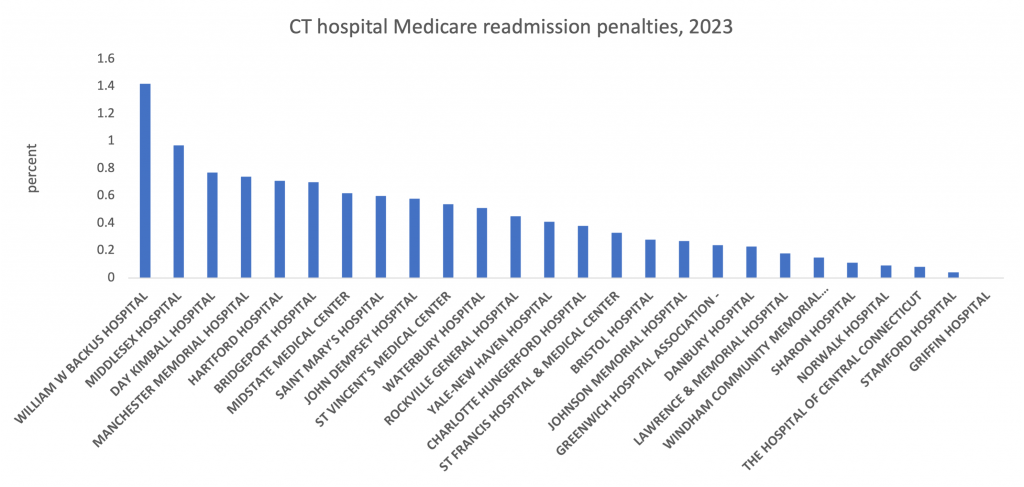healthcare costs
Survey finds CT hospital collections policies allow lawsuits and denial of care
A recent survey by Kaiser Health News found that many US hospitals have aggressive policies for patients who can’t pay their bills. Policies include lawsuits, reporting to credit rating agencies, selling the debt to collectors, and even denying non-emergency care. Medical debt affects one in five US households and the average debt is $21,687. The…
Read MoreUpdate: Policy options to support competition and control healthcare prices
Download the fact sheet Download the updated resource list Healthcare service prices are the main driver of Connecticut’s rising health insurance premiums. The consolidation of hospitals and providers into large health systems has stifled competition, allowing prices to rise unchecked. Other states have taken action to protect competition in consolidated markets and it’s working. Connecticut…
Read MoreBook Club — The Data Detective
The Data Detective: Ten Easy Rules to Make Sense of Statistics follows on the Book Club’s obsession with statistics and good data analysis (here, here, here, and here). Good policy rests on good evidence. There are good sources, including the books linked above, that uncover misleading information, with clues to identify them, and that’s important.…
Read MoreCTNJ op-ed: Health insurance affordability review is good, but it’s no silver bullet
A movement to include affordability in the Insurance Department’s review of health insurance premiums is gaining champions. That’s a good thing. The best care is useless if you can’t afford it. Holding insurers accountable for lowering costs is important, but it’s not going to solve everything. We need to do much more to get costs…
Read MoreNo evidence to justify increases for 7 of top 10 most costly drugs
The latest Unsupported Price Increase report from the Institute for Clinical and Economic Review finds that, last year, seven of the ten most costly drugs in the US that raised net prices well over the rate of general inflation, had no new clinical evidence of effectiveness to justify the increases. The increases on just these…
Read MoreCT’s best healthcare secret — CID’s Consumer Report Card
It may not attract the same enthusiasm as other holidays this time of year, but if you’re shopping for health insurance during this Open Enrollment season, you need this resource. As a health policy researcher, there are few better sources of information on how insurers are performing. The Consumer Report Card on Health Insurance Carriers…
Read MoreCT hospitals’ charity care varied widely last year, a bit more than US
Last year, uncompensated care at Connecticut’s 27 acute care hospitals averaged 1.8% of total expenses, according to the state’s latest report. However, that rate varied from 4.2% at Norwalk Hospital to 0.5% at CT Children’s. Uncompensated care is services provided that hospitals are not paid for. It includes charity care, which hospitals forgive from the…
Read MoreCT hospital readmission penalties higher than US, again
Even with an eased formula due to COVID, all but one acute care Connecticut hospital will be penalized by Medicare next year for higher-than-expected readmission rates. Next year, Connecticut hospitals will be docked by 0.456% on their Medicare payments, higher than the US average of 0.428%. Average Connecticut hospital readmission penalties have been higher than…
Read MoreCTNJ Analysis: Yale-New Haven Health announces layoffs while planning to buy 3 hospitals, and why it matters
It’s puzzling. Yale-New Haven Health System recently announced 72 layoffs and eliminated 155 positions among their managers, but they scored large profits last year and they have enough money to buy three more Connecticut hospitals. If approved by the state, the acquisitions will make Yale the largest health system in the state. We should all…
Read MoreDSS responds to advocates’ questions about HUSKY maternity bundles
More than one in three Connecticut births are covered by the HUSKY program, including some pregnancies at risk for poor birth outcomes. DSS has an ambitious plan to change the way providers are paid for those births. The goals are to improve equity, lower C-section rates, poor maternal outcomes, lower opioid-related pregnancy conditions, and reduce…
Read More








